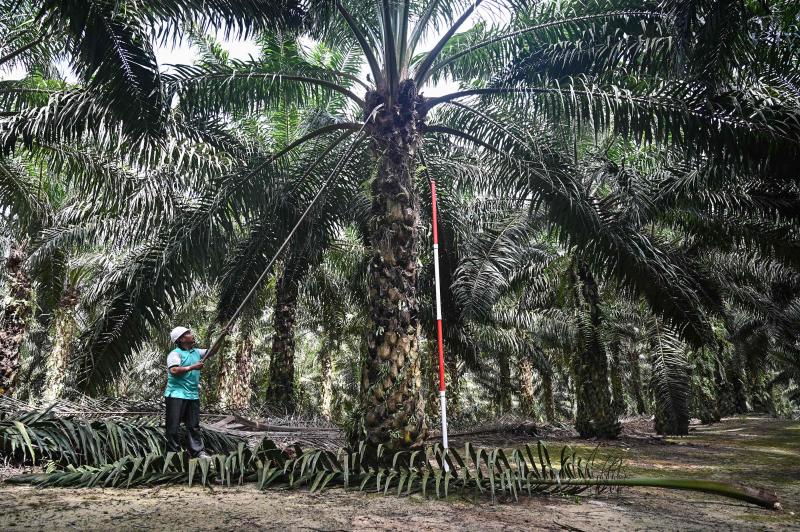Malaysia prepares to boost palm-biofuel use in wake of EU limits
Sign up now: Get insights on the biggest stories in Malaysia

Malaysia, the world's second-largest palm oil producer, plans to double its biofuel programme to B20 by 2020, which mandates fuel be blended with 20 per cent palm-biodiesel.
PHOTO: AFP
KUALA LUMPUR (BLOOMBERG) - Malaysia's national automotive policy is expected to allow for a higher percentage of palm-biodiesel blends over the next few decades, according to International Trade and Industry Minister Darell Leiking.
The government plans to include a "B20/B30-ready" specification for vehicles in a review of the policy, Mr Leiking said in a statement on Saturday (May 25).
Malaysia, the world's second-largest palm oil producer, plans to double its biofuel programme to B20 by 2020, which mandates fuel be blended with 20 per cent palm-biodiesel.
"Palm oil is a viable option to reduce our dependency on fossil fuels, as it has tremendous potential as a renewable source of energy," he said.
"While there has been opposition against the current practices of planting palm oil recently, it only shows that there is demand and potential for the sector to emerge an important player to meet the needs of the energy and transportation sectors."
The European Union earlier this week published regulations setting new criteria for the use of palm oil in biofuels.
The rules, which will have a certification system and restrict the types of biofuels from palm oil that may be counted toward the EU renewable-energy goals, will come into force on June 10.


